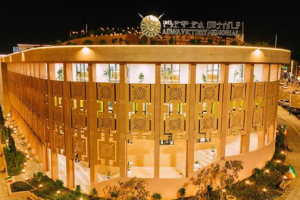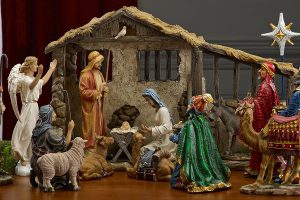BY MULUGETA GUDETA
What is happening in this country as we write the following lines is a typical example of how African dictatorships rise and fall. They rise with a big bang, fall without a whisper and disappear in the night sky like dying meteors.
Tyrant write or rewrite their own history which is full of lies and deceptions that are short lived or easily forgotten. Artists and writers come up with their own narratives that are truthful and long-lasting if eternal.
That is why Czech writer Milan Kundera, in his work that exposed the deceptions, lies and illusions of communist rule in former Czechoslovakia wrote that, “The struggle of the author against power is the struggle of memory against forgetting.”
Therein lies the usefulness of art and culture or that of the artists that put a mirror in which the lives of millions of ordinary people and well as their tormentors are reflected.
In Africa, self-proclaimed liberators or liberation movements that come to power often consider the countries they conquer with their guns as if they were war booties or their private properties.
The conquered people are controlled and ruled with iron fists and the resources they control are spent left and right as if they are wad of money in the pockets of drunken hooligans to be shared with their close collaborators or ethnic minions. To borrow Franz Fanon, these people the new oppressors in white skins but black masks.
African history is often shaped by ‘big’ men who put themselves at the head of large armies of looters and their lackeys. Don’t go too far. Look back at the last 27 years of Ethiopian history.
The so-called big men, the infallible and undefeatable gentlemen announced their arrival with great fanfare and a big bang as if a new star were born. Where are they now? On the ran! Who said that history repeats itself the first time as a tragedy and the second time as a farce?
African dictators come in all varieties. Some of them proclaim themselves “presidents for life” or “ruling parties for life”. They “win” elections with 99 if not 100 percent of the popular vote. They plan to stay in power for the coming 50 or 100 years by rigging the votes or by running elections without contestants or by simply announcing or proclaiming that elections are unnecessary. Maybe the big men have grown beyond elections.
When the ‘strong man” who was anointed to rule the country with iron fists for many more decades passes away suddenly, his party becomes “ruler for life” until of course it decays from inside and is pushed from outside and tumbles miserably. One of the fatal weaknesses of tyrants may be that they don’t realize when their time is up and continue to indulge in their old games until their tragic end.
In his own country, Kenyan novelist and playwright (I will Marry when I Want) James Ngugi, alias Ngugi wa Tiongo, is distinguished for his long struggle against African dictatorships of all forms and colors, ranging from the tyranny of the ‘strong’ men based on tribal rivalries or elite tyrannies behind the tribal trademarks.
From Weep not Child, to Petals of Blood, and Devil on the Cross, Ngugi’s political fiction is directed against tyranny, the sufferings of the people of Kenya and unanswered calls for true liberation and genuine Uhuru, a Swahili word for freedom.
The one time top Kenyan politician Odinga claimed that freedom had not yet come to Kenya in his memorable book title, Not Yet Uhuru or Kenya is not yet free. Ngugi was too young to remember about life under British colonialism and unlike Nigerians Achebe or Soyinka, he could not relate his direct experience of that period in Kenyan history. He rather deals with politics in post-colonial Kenya, when elites who replaced the colonialists proved no less greedy or no less brutal than the colonial masters.
Ngugi’s readers are familiar with his ideological leanings towards socialism and his sympathies for working class or peasant politics as well as with his admiration for the former Soviet Union where he followed his studies earlier in his career as a writer.
Ngugi’s anti-imperialist politics is likewise evident in his earlier works as he accused colonial-minded politicians of betraying the cause of true liberation for which Kenyans sacrificed their lives fighting British colonialism and then Western imperialism.
Now that so-called African socialism is dead and the Soviet Union is no more, Ngugi hand as continued the fight turning his attention against the tyranny of the so-called African “big men”, the ageing plutocrats who refuse to leave office even after losing election and turn themselves into “presidents for life”.
Others are keen to claim the mantle of eternal ruler because on their self-serving claim of service to their nations during the struggle for national liberation from foreign rule or from local tribal elites.
In his latest and perhaps his magnum opus, Ngugi’s razor–sharp focus is still on the tyranny of the African Ruler and in Wizard of the Crow, this ruler is not only a Kenyan ruler but and African ruler.
The author has grown from a clinical dissection of one type of tyranny to a massive accusation of the symbolic African tyrant, the Ruler in Chief, leader of the ruling party and commander in chief of the army, if you like.
The Ruler in Wizard of the Crow is the quintessential African dictator, whose grotesque fantasies lead him to put in place an impossible project for the erection of an African Tower of Bebel or a tower that reaches to the sky, as a symbol of his limitless and ever increasing powers and possessions.
In his immense book of some 700 pages, Ngugi makes a quantum leap from his traditionally realistic narration to a kind of African magical realism and/ or the phantasmagorical style of narration evident in the magic realists of Latin American political novel such as Colombian Gabriel Garcia Marquez or Chilean Isabelle Allende. This is natural because magic realism is a narrative device that best exposes the true nature of the African ruler.
Ngugi shifted to a blend of fantasy and realism, modern mythology, farce, satire and what not as it suits its purpose, because for him the character of the African Ruler could not be grasped within the framework of traditional realist mode of narration. Ngugi is telling an African story with African tools and techniques including oral literature forms derived from Kikuyu traditions and lives. The African Ruler has grown beyond realism and spilled over into fantasy, nightmare, bitter irony, Kafkaesque absurdity all in one.
As much as Nigerian writer Chinua Achebe dissected and analyzed the effects of colonialism in traditional African society, Ngugi ridicules the modern black elites of post-colonial Africa where the anti heroes are not the white colonialists but local elites whose appetites for money and power knows no bounds.
Kenyan foremost author Ngugi wa Tiongo’s towering novel about African dictators and their misdeeds should be on the reading list of every African school and university. It should be found, perhaps like the Bible, in every African household so that new generations of African leaders could see how their so-called historic leaders were historic dictators enmeshed in corruption, self-enrichment and wallowed in lives of unimaginable luxury and decadence while their compatriots languished in poverty.
Wizard of the Crow is a harsh depiction of the political realities in Africa. The book sheds light on how the dictators and their entourages deceived the peoples, indulged in self-aggrandizement and fought against themselves for the attention of the tyrant by engaging in plots and intrigues just to consolidate their positions and that of their master in the mean time dreaming of eternal life in a Bebel like tower of isolation that could reach the sky and make them Godlike.
In Wizard of the Crow, the protagonist, a certain Ruler of the Republic of Abburia with his love for money and power lives in a fantasy world with his project to build a tower that reaches to the sky as a symbol of his immense powers and the extent of his grandiose ambition.
Wizard of the Crow is not only a satirical portrayal of power in his native country. It is rather a portrait of African dictatorships at the dawn of the 21st century. The book is a collective portrait of the sufferings, struggles and hopes of Africans everywhere.
The imaginary Republic of Aburria is the real Africa and the ruler of that imaginary country is also a portrait of the African ruler, a simplified version of many African leaders.
As a political novelist and a critic of African tyranny, Ngugi’s life was strewn with a series of arrests and exile. This has not deterred him from pursuing his life’s calling, that is to write about the people and for the people. As he preferred to be called Ngugi wa Tiongo, rather than James Ngugi, he also decided to write in his native Kikuyu and then translate his book into English that in his eyes is the language of the colonizers and the neo-colonizers.
Many literary critics and respected members of the literary establishment in the West often wonder why Ngugi was not awarded the Nobel Prize for literature not only for Wizard of the Crow but for his collected works and his life that is spent in defense of the fundamental rights of Kenyans. With his books, Ngugi has done to portray or expose the tragedies of Africa more than what any human right organization in the West has done.
In the opinion of many insiders of the African literary world, Nigerian Chinua Achebe deserved the Nobel Prize but he died without having it. Ngugi too seems to be condemned to the fate of invisibility while he is the shining star of African literature.
The Ethiopia Herald December 20/2020





